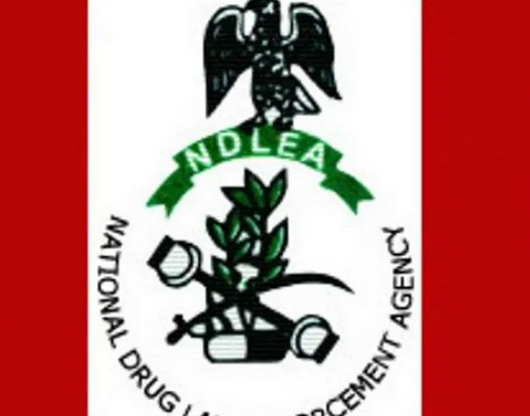His frame keeps many looking up as he bounces around like basketball. Jonnie Isebor started from the ground, picking ball on the tennis court before towering to a major hit in slam – dunk.
As a boy, Isebor watched his elder brother, Joe, play tennis with the high and mighty. The senior would later win gold for the University of Nigeria Nsukka ( UNN ) at the 1978 Nigerian Universities Games ( NUGA) hosted by the University of Lagos.
“Family background and my big brother were a major influence. I was his perennial ball – boy on the tennis courts. I picked balls when he played the likes of Tony Ukpo ( later Information minister in the Ibrahim Babangida years) and Shehu Yar’adua. But for some reason, I didn’t catch the tennis fever,” Isebor said.
Joe Isebor and wife, Esther Onyekwelu, both UNN graduates, are better remembered as the couple who beat David and Kumbi Imonitie to emerge as Nigeria’s number one tennis couple in the 1980s. Isebor is a Vet. Doctor.
Tennis could not keep Jonnie Isebor. Basketball snatched him and did not let go. As a student, his dad, Lazarus Maduka Isebor, was on the Edo College soccer team doing magic on the left wing. The son stuck to slam and dunk.
“I was outgrowing my peers and basketball caught my fancy. I started to pick more basketballs and fewer tennis balls. The biggest influence was my high school. I was privileged to attend an elite boarding school between 1972 and 1978. Edo College taught me plenty of life lessons that I still cherish.
“We had all kinds of sports that we were exposed to. I played field hockey, cricket, volleyball, basket ball and football. I was two – left footed on the soccer pitch, my soccer skills were ‘un – examplary’. I watched the senior boys play basketball, and any little time I had, I played”, he explained.
From there, it was onward movement. Edo College hosted the national team’s practice sessions and coach Oliver Johnson turned the student to Oliver Twist, who wanted more about the game.
“The national team practiced on our school courts. Then there was Oliver Johnson, the then national basketball coach. There were US college teams that played against the national team. At 12, I was exposed to local, state, national and international basketball.
“I began to research. I went to the library to read up everything about the game. I was thinking, reading and dreaming basketball. I was a devoted student of the game. I didn’t get to play organised basketball until I was 14, going on 15.”
Isebor grew fast. At 17, he led the Bendel State Intermediate team to the Third National Sports Festival, Kaduna ’77 and came back with a bronze medal. They beat Kaduna State. One of the Kaduna stars, Sadiq Abdullahi, later departed from the game to concentrate of tennis. He became national champion thrice consecutively and an Olympian.
“I was captain of the Bendel State Intermediate team, genuinely under 18, no false age declarations. I played against the likes of Scott Nnaji, Sam Ahmedu and Sadiq Abdullahi. As a matter of records, we beat Kaduna State to the bronze medal.
READ ALSO: Dangote Refinery: Dapo Abiodun lied, Says Amosun
“Sadiq Abu Abdullahi hasn’t forgotten that game. He still reminds me of how I tortured him in front of his home crowd. Sadiq was the best high school sportsman in Kaduna State in 1977 only for me to mesmerise him with my low – post moves. After Kaduna ’77, and at 17, I was invited for the national team for trials,” Isebor said.
In 1978, Isebor was asked to join the national team preparing for the Third All Africa Games, Algiers 1978 but could not travel to North Africa because of studies.
According to him : “Coach Lala, the Yugoslav who handled Plateau State, saw plenty of potential in me. He invited me back to the national camp in preparation for the Third AAG. I was on the team to the Zonal Eliminations in Porto Novo in January 1978. I didn’t make the team to Algeria. I didn’t stay in camp either. I was preparing for my HSC exams.”
The young man would later go beyond Africa, thanks to education. As a student of the University of Lagos, Isebor made the Nigerian contingent to the Romania 1981 World Universities Games, Universiade.
“We were a Middle level squad. Our star player and 10th best scorer was Tari Preh. I was the second highest scorer on our team. Other team mates included Musa Kida, Babatunde Ogunade, Samuel Ahmedu, Scott Nnaji and Teddy Ajibarede Bello.”
Romanian President, Lt. Gen. Nicolae Ceausescu, was all smiles as he opened the games which had 86 Nations, with 2912 athletes in attendance.
The Soviet Union topped the table with 40 gold medals followed by hosts, Romania, 30 gold and the US, 29 gold medals. Nigeria came back empty handed. Africa’s best, Morocco, finished 14th overall, thanks to Said Aouita’s lone long distance gold. Algeria , Cote D’Ivoire and Ghana got a bronze each and emerged in 26th place.
The Americans defeated USSR to claim the men’s basketball gold. Yugoslavia settled for bronze. Nigeria was placed in group F alongside Canada, Egypt and Poland in the first round. They beat Egypt 129 – 89 but succumbed 102 – 48 to Poland and 131 – 41 to Canada.
In the Classifications, Nigeria played in group P with Senegal and Jordan. The Senegalese triumphed 96 – 67. Jordan lost 100 – 62. Isebor and his team mates finished 25th in basketball out of 30 nations. The Ivorians were 15th, Congo 21st, Libya 22nd, Somalia 23rd and Senegal 24th. Sudan fell four places behind Nigeria. Rwanda/ Burundi were last in position 30.
Isebor said: “After what I saw, I was highly disappointed at the way we managed basketball and sports in general in Nigeria.”
He did national service in Kwara State and now lives in Springdale, Maryland, US as Dr. Jonnie Isebor.
He would have been shocked when the Romanian Revolution consumed Ceausescu and wife, Elena, on Christmas Day, 1989. Their 42 – year marriage ended in Targoviste as they faced a firing squad, still glued to each other, although with hands tied behind their back.
The president sang ‘ The International’ as the trio of Capt. Ionel Boeru, Sgt. Maj. Georghin Octavian and Dorin – Marian Cirian opened fire. Isebor has found himself outside Africa, as an International.












